MARTIN SCORSESE PRESENTS MASTERPIECES OF POLISH CINEMA
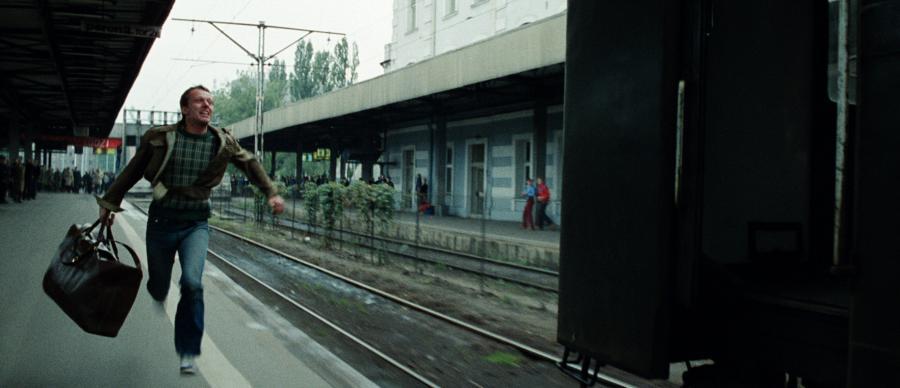
The rich and varied national cinema of Poland will be explored in this exciting survey of great Polish features spanning the late 1950s to the late 1980s. Released by Milestone Films, the newly restored selections have been personally curated by American filmmaker and cinephile Martin Scorsese. The series includes three movies by the Oscar-winning groundbreaker of contemporary Polish cinema, Andrzej Wajda, plus exciting work directed by other giant talents like Krzysztof Kieslowski, Agnieszka Holland and Jerzy Skolimowski. The series is co-presented with the UW’s Department of Slavic Languages and Literature and the Center for Russia, East Europe, and Central Asia.


- Fri., Mar. 6 | 7:00 PM4070 Vilas Hall
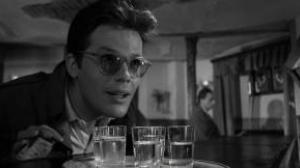
In the movie that cleared the way for a new wave of Polish cinema, a soldier during the final days of WWII is ordered to assassinate an official but his mission is stalled when he falls in love with a barmaid. Using powerful and memorable black and white imagery, Wajda’s classic is a potent reminder of how life and love are not compatible with war.
- Fri., Mar. 6 | 8:45 PM4070 Vilas Hall
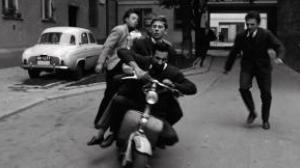
A cocky and freewheeling young doctor who spends his evenings playing jazz in nightclubs meets the girl of his dreams, but she’s not so easily attainable. Polanski appears as one of the hero’s layabout pals. The score is by Polanski’s regular composer in the 1960s, Krzysztof Komeda, who also appears as himself.
- Fri., Mar. 13 | 7:00 PM4070 Vilas Hall
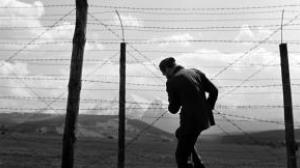
A brilliant and brave black comedy set during the Nazi occupation of Poland, Munk’s feature tells two stories. In the first, a war-avoiding coward proves to be a hero in spite of himself. Next, a soldier fed up with military pretenses, attempts a hopeless escape from a prison camp. “Munk [was] an unusually caustic observer of his countrymen's collective emotional hangups” (J.R. Jones, Chicago Reader).
- Fri., Mar. 13 | 8:45 PM4070 Vilas Hall
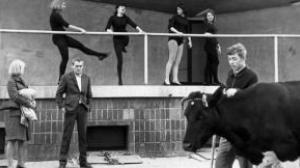
In the second of four autobiographical features, writer/director/actor Skolimowski (Deep End) plays a fictional version of himself: a working class outsider who becomes a boxer at the factory where he is employed. Moody and gritty, Skolimowski takes a hard look at competition in business and sports.
- Fri., Mar. 27 | 7:00 PM4070 Vilas Hall
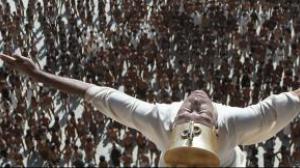
In 12th century B.C., Rameses, son and heir to the Pharaoh, experiences a power struggle with Egypt’s high priests in his efforts to wage war on the Phoenicians. Fully restored to its original length, Kawalerowicz’ Oscar-nominated CinemaScope epic is one of the most fascinating and unique in all of Polish cinema.
- Fri., Apr. 3 | 7:00 PM4070 Vilas Hall
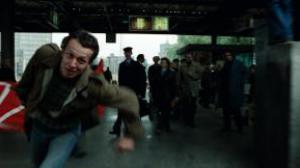
Using an exciting and experimental narrative device, Kieslowski explores three possible outcomes of Witek (Linda), a young man racing to catch a train. In each of the three different lives, politics, friendships, sex, alliances, and betrayals all play a part, in their own unique ways. Kieslowski shows how any one of those elements can alter the fate of his hero.
- Fri., Apr. 17 | 7:00 PM4070 Vilas Hall
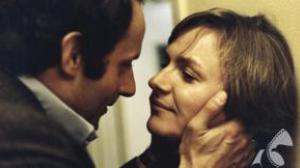
Krzysztof, a leading actor in a provincial theater troupe, locks horns with the director of a politically charged play. At home, he faces a crumbling marriage as his puppeteer wife, Anka, grows impatient with his ego and need to become a star. For her first feature as sole director, Holland (Europa Europa) convincingly and humorously depicts the pressures felt by artists living under a communist regime.
- Fri., Apr. 24 | 7:00 PM4070 Vilas Hall
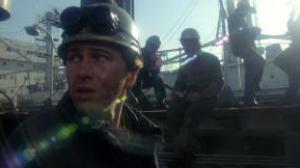
Wajda traces the history of the solidarity movement in Poland by following the fictional rise of a labor leader (Radziwilowicz) through the eyes of an alcoholic radio journalist. Providing the story with great authenticity, Wajda weaves in actual footage of strikes and demonstrations led by Walesa, who also appears as himself at the wedding of the hero.
- Fri., May. 1 | 7:00 PM4070 Vilas Hall
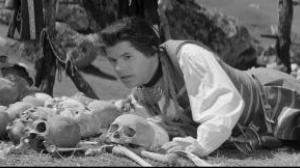
The moral testing of an officer in the Napoleonic Wars (Polish film idol Cybulski) serves as the center of a Scheherezade-type plot that incorporates nine interconnected tales told by various colorful narrators. The spellbinding and surreal narrative, with its multiple flashbacks-within-flashbacks, is accentuated by gorgeous black-and-white widescreen cinematography and Krzysztof Penderecki's eclectic score. The Saragossa Manuscript was reportedly the favorite movie of the Grateful Dead’s Jerry Garcia.
